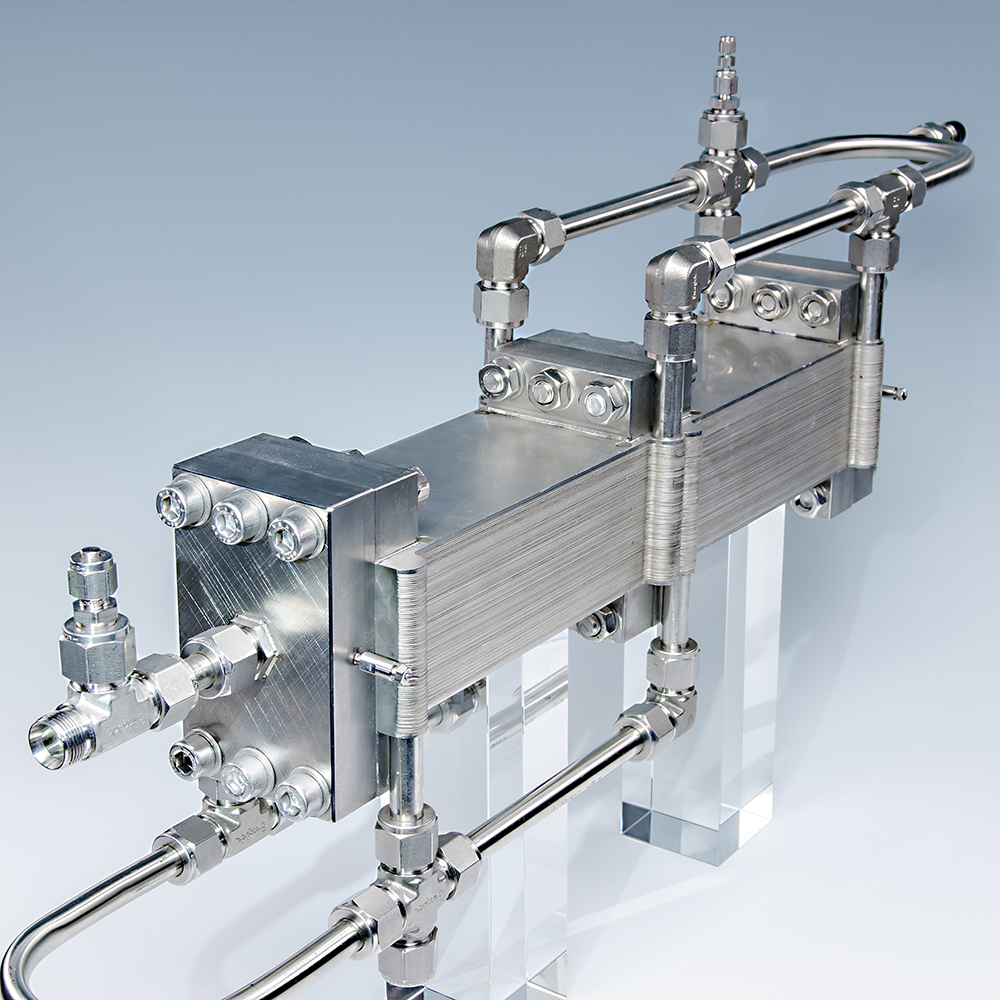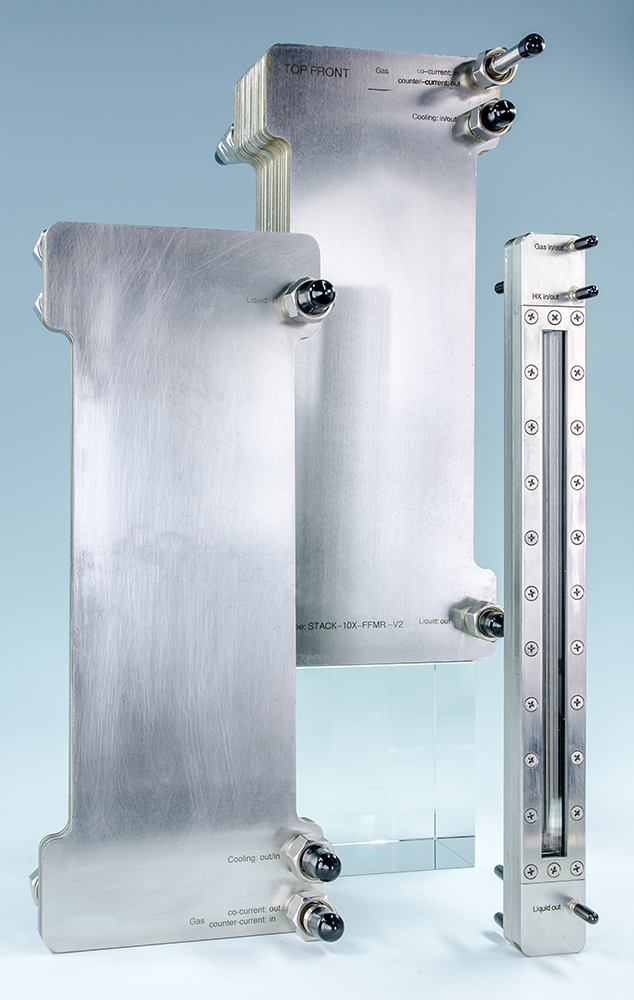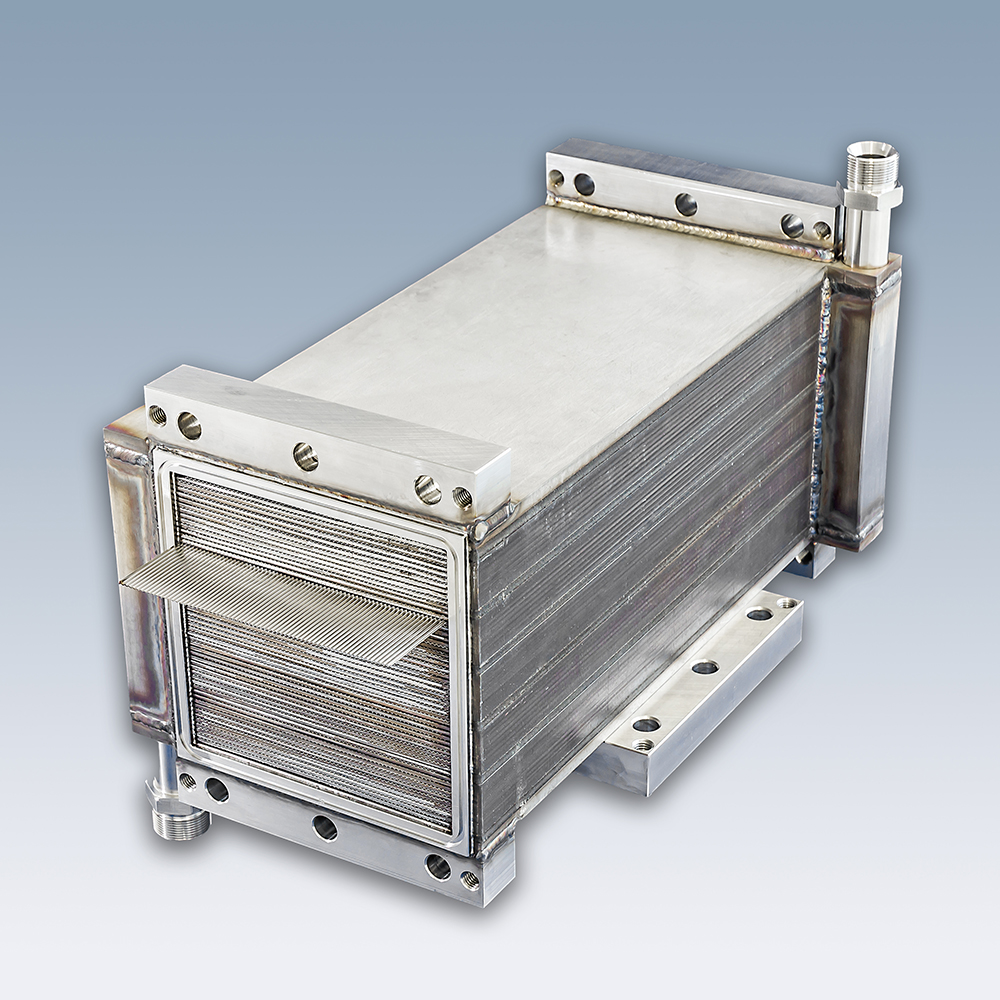Micro- and millistructured reactors allow for production at the point-of-use
No matter if in automotive industry, when dealing with medical and cosmetic products or in agriculture, the demand for increasingly customized products taking into account individual requirements leads to ever shorter product cycles. Accordingly, companies need to respond rapidly and flexibly to changing market situations in order to maintain the acceptance of their products and their competitiveness. Many of these products contain special and fine chemicals which were specially formulated. The production of these chemicals needs to take place in an increasingly environmentally friendly, resource saving, safer and more cost-efficient manner.
One solution to this problem is based on the increasing utilization of natural and sustainable material and energy resources which are commonly only available in a de-centralized manner. This consistently implies a decentralized production in small plants close to the consumer as well. A revised thinking coincides with that when dealing with the planning and realization of the required plants and processes showing a tendency towards smaller, modularly built and, if required, even mobile plants. A further approach relies on the intensification of the processes involved, i. e. the synthesis of products and their further treatment.
We use our extensive hardware portfolio as well as our long-time experience to develop individually adapted reactors in a modular and scalable design meeting the requirements of the process to be optimized. At the same time we make use of cost-effective fabrication processes. Thanks to their properties, micro- and millistructured reactors or devices are ideally suited to solve the issues described, especially when continuous synthesis processes are applied in the special and fine chemical field as well as in the synthesis of active pharmaceutical ingredients. Even larger quantities are not a problem. Applying novel fabrication technologies we have manufactured and successfully tested special reactors for the decentralized energy production based on fuel processor technology for hydrogen and fuel cells in large quantities.
Your advantage
- Cooperation with a leading developer and user of micro- and millistructured devices right from the beginning of the nineties,
- feasibility of short mixing times,
- realizability of high specific surfaces for the heat transfer as well as for the implementation of catalysts,
- large specific phase boundary interface in multiphase processes,
- increased safety by controlled processing and significantly reduced reaction volume compared to a conventional reaction apparatus.
Our success factors
- Easily scalable, modularly constructed reactor families as development basis,
- development, construction and manufacturing of micro- and millistructured flow reactors which are optimally adapted to the specific process or operation purpose respectively, from lab to industrial scale,
- specific and very often highly integrated design,
- wide portfolio of solutions for single-phase or multi-phase processes as well as for non-catalytic, heterogeneously and homogeneously catalyzed reactions,
- development and use of various cost-efficient fabrication technologies for the plate stack reactors often used, such as rolling and embossing for the structuring of reactor plates as well as laser welding and vacuum brazing for joining the plates of a stack,
- design of special devices for additive fabrication processes such as laser melting.
We guide our customers from the initial idea via simulation up to the realization of a functional model, but as well up to fabrication of pilot series or a technology transfer.
Typical questions
- Modular reactors for modular plants for highly exothermic processes such as the continuous epoxidation of plant oils and the propoxylation of alcohols,
- integrated reactors to obtain and work up gases containing reformers and complete fuel processors for hydrogen production from different conventional and renewable fuels (such as diesel, LPG, methanol or propylene glycol) for the use in fuel cells,
- reactors for the decentralized production of critical (dangerous) chemicals,
- reactors for different processes in the bio refinery field,
- reactors for gas/liquid contacting (for instance hydrogenation, ozonolysis, direct fluorination) by means of heterogeneous catalysis,
- photochemical reactors.
 Fraunhofer Institute for Microengineering and Microsystems IMM
Fraunhofer Institute for Microengineering and Microsystems IMM

